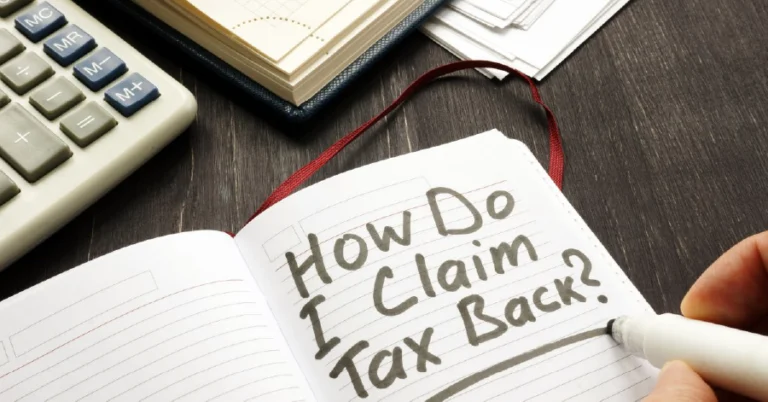Many small entrepreneurs wonder if forming a private company (Pty Ltd) will cut their tax bill. The answer is “it depends.” As a sole proprietor, your business income is taxed at your personal rates (18%–45%)1. You also enjoy a R95,750 tax-free threshold (2025 level)2 and rebates that reduce tax at low incomes. By contrast, a registered company pays a flat 27% corporate tax on its profits3. (When you later withdraw profits as dividends, there is an additional 20% dividends tax4.)
- Sole Proprietor (Unincorporated): Profits are taxed on your personal return. You benefit from the sliding tax tables, annual rebates, and the R95k threshold56. Filing is simpler – just one return – but you have unlimited personal liability.
- Private Company (Incorporated): The business is a separate legal entity. It pays 27% corporate tax on profits7, then any profits you take as dividends get 20% tax8. You’ll need to file a company tax return (and possibly provisional taxes) and comply with CIPC (company registration) and PAYE/VAT rules. The upside is limited liability and potential tax planning (e.g. splitting income between salary and dividends).
Because companies pay 27% (with no tax-free portion) versus an individual’s marginal rate, whether you save tax depends on your profit level and how you withdraw funds. In general, at lower incomes a sole proprietor pays less, but at very high profits a company can win. For example, The Company Library shows a R600,000 profit scenario: the sole proprietor owed about R135,000 in income tax, whereas a company with a R200k salary and the rest as dividends paid a total R181,400 in tax9. In other words, the sole proprietor kept more in that case. Similarly, TaxTim’s example of R1,000,000 taxable income found the individual paid about R312,822 while the owner of a one-person company (after salary and dividends) paid R337,779 – a difference of ~R25k in favor of staying unincorporated10. These examples show that only when profits grow very high (and push personal tax into the 41–45% brackets) does the company’s 27% rate start to outpace personal tax1112.
When Incorporation Makes Sense
Registering a company is not purely a tax decision – it also affects risk, growth, and credibility. A Pvt Ltd is usually worth considering if:
- Your profits are substantial. If your business will earn well above R1 million annually, a flat 27% rate can sometimes beat the high-end personal rates. At these levels, corporate tax plus a retained earnings strategy may yield savings13.
- You need liability protection. As a company, shareholders’ personal assets are shielded from business debts (unlike a sole prop)14. This is vital in riskier industries or township enterprises where assets are modest.
- You plan to reinvest profits. Companies can retain earnings at 27%, whereas a sole proprietor would face immediate personal tax on all profit. Deferring personal withdrawal allows reinvestment at a lower tax bite (though dividends tax may apply later).
- You seek investment or credibility. Corporations are often more attractive to investors, banks, and large clients. For example, a freelance client might only deal with registered companies. TheCompanyLibrary notes that for growing startups or when outside funding is needed, a Pty Ltd adds trust and easier share issuance15.
Conversely, if you’re just starting out, have low revenue (say under R500k), and want minimal admin, remaining a sole trader is usually best16. You avoid extra fees and can use personal tax allowances. In many cases, entrepreneurs start as sole proprietors and incorporate later as income and complexity grow.
Examples: Where a Company Saves (and Where It Doesn’t)
- Low-to-Moderate Income: If your annual net profit is modest (e.g. R100k–R500k), being sole proprietor almost always yields lower tax. You benefit from the tax-free threshold and low rates. (A sole proprietor on R100k paid only a few percent in TaxTim’s scenario17.)
- Mid-Range Income: Around R600k–R1,000,000, examples show sole proprietor often still pays less (as above)1819. The sliding scales and rebates can make personal tax effective rate lower than 27%.
- High Income (Multiple Millions): Only when taxable profit climbs near the top brackets does the company break even or win. For instance, beyond roughly R1.7 million (41% top bracket), a company’s 27% plus dividend tax might compare favorably to a 41–45% personal rate2021. At that stage, careful tax planning (e.g. paying minimal salary and leaving profits in the company) can reduce your overall tax.
Bottom line: Forming a company can reduce tax bills in some high-profit cases, but it often increases tax at lower profit levels. Always run the numbers (including salaries and dividends) for your specific situation.
Compliance and Hidden Costs to Consider
The tax implications aren’t the only factor – a company brings extra compliance. With a Pty Ltd you must register the company name and file CIPC annual returns (currently R345 per year), appoint a registered representative on eFiling, and maintain separate accounting records. There are also administrative costs: The Company Library estimates initial registration (name reserve R50, registration R175) plus legal and consulting fees, and ongoing expenses like professional accounting (R2,000–R8,000/month) and tax compliance (R5,000–R15,000/year)22. In total, first-year costs for a company can easily reach tens of thousands of rand23 – far above the minimal costs of a sole proprietor.
These added obligations consume time and money. You may need to hire an accountant or company secretary, spend hours on CIPC and SARS filings, and keep stricter records. “Hidden” costs include the administrative burden of learning new regulations, preparing annual financial statements, and paying a provisional return (IRP6) twice a year, even if no salary is drawn. Tax lawyers and accountants note that neglecting these can lead to penalties or legal risk 2425.
Managing the Costs: If you do incorporate, plan ahead. Budget for CIPC registration and annual returns, and for professional fees. Use accounting software to track finances and payroll. Keep personal and company accounts strictly separate. Many entrepreneurs find that hiring a qualified accountant (like Zaccheus) is worth the investment – it ensures compliance and maximizes any tax benefits without costly errors.
In summary, registering a company is not a guaranteed way to pay less tax. It may make sense for liability or growth reasons, or if your profits are high enough to offset the higher compliance costs. Before deciding, compare examples (as above) and seek expert advice. At Zaccheus Accountants, we can help you run the numbers for your business, explain compliance requirements, and plan the most tax-efficient structure. Curious about whether a company makes sense for you? Visit www.zaccheus.co.za to learn more and book a consultation. Our advisors are ready to guide your small business through this important decision.
Sources:
- The Company Library ↩︎
- Rates of Tax for Individuals ↩︎
- Companies, Trusts and Small Business Corporations (SBC) sars.gov.za ↩︎
- The Company Library blog.thecompanylibrary.co.za ↩︎
- Rates of Tax for Individuals sars.gov.za ↩︎
- The Company Library blog.thecompanylibrary.co.za ↩︎
- Rates of Tax or Individuals sars.gov.za ↩︎
- The Company Library blog.thecompanylibrary.co.za ↩︎
- The Company Library blog.thecompanylibrary.co.za ↩︎
- Sole Proprietor or Company: What’s Best for Tax? taxtim.com ↩︎
- Sole Proprietor or Company: What’s Best for Tax? taxtim.com ↩︎
- The Company Library blog.thecompanylibrary.co.za ↩︎
- Sole Proprietor or Company: What’s Best for Tax? taxtim.com ↩︎
- The Company Library What Business Type Should You Choose in SA: Sole Prop vs Ltd vs Inc blog.thecompanylibrary.co.za ↩︎
- The Company Library What Business Type Should You Choose in SA: Sole Prop vs Ltd vs Inc blog.thecompanylibrary.co.za ↩︎
- The Company Library What Business Type Should You Choose in SA: Sole Prop vs Ltd vs Inc blog.thecompanylibrary.co.za ↩︎
- Sole Proprietor or Company: What’s Best for Tax? taxtim.com ↩︎
- What Business Type Should You Choose in SA: Sole Prop vs Ltd vs Inc blog.thecompanylibrary.co.za ↩︎
- Sole Proprietor or Company: What’s Best for Tax? taxtim.com ↩︎
- Sole Proprietor or Company: What’s Best for Tax? taxtim.com ↩︎
- What Business Type Should You Choose in SA: Sole Prop vs Ltd vs Inc blog.thecompanylibrary.co.za ↩︎
- What Business Type Should You Choose in SA: Sole Prop vs Ltd vs Inc blog.thecompanylibrary.co.za ↩︎
- What Business Type Should You Choose in SA: Sole Prop vs Ltd vs Incblog.thecompanylibrary.co.za ↩︎
- What Business Type Should You Choose in SA: Sole Prop vs Ltd vs Inc blog.thecompanylibrary.co.za ↩︎
- SMME CONNECT #5 – MAY EDITION sars.gov.za ↩︎



